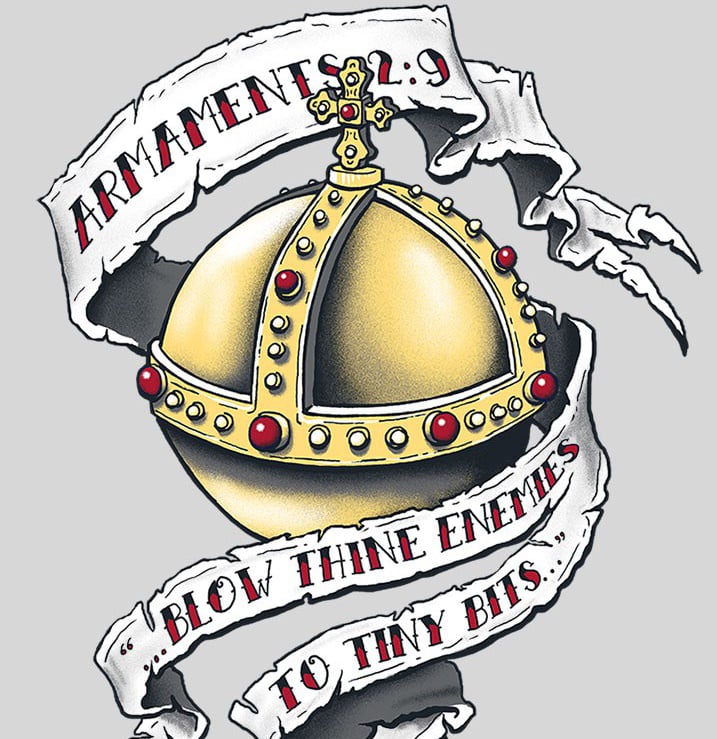What are some (non-English) idioms, and what do they mean (both literally and in context)? Odd ones, your favorite ones - any and all are welcome. :)
For example, in English I might call someone a “good egg,” meaning they’re a nice person. Or, if it’s raining heavily, I might say “it’s raining cats and dogs.”
In Japanese they say “sonotori” translated literally it means “that bird” the English idiom equivalent is “on the nose”
I hate to be “that guy”, but 鳥/とり/tori (bird) isn’t related to the 通り/とおり/toori (way, road, etc) in the phrase.
“The bamboo is moaning” It’s raining really hard.
Having pigs in the forest - to be hiding something.
The tax man would go from farm to farm back in the old days and count the number of pigs. The farmers would be taxed accordingly. Naturally, when you heard the tax man was coming, you’d send some pigs into the forest so that you’d be taxed less. Norwegian. :)
Icelandic is full of fun idioms:
“He’s totally outside driving” = he’s very incorrect about something, possibly crazy
“It’s hard to grab his horns” = He’s very headstrong and stubborn
“A wave rarely comes alone” = If something bad happens, usually a lot of bad things happen at once
“He hasn’t peed into the salty sea” = he’s young an inexperienced
“He has unclean flour in the corner of the bag” = he’s untrustworthy
“I totally come from the mountains” = I’m out of the loop, unaware of recent developmentsA wave rarely comes alone
An equivalent idiom in English for this one might be “When it rains, it pours”
‘Les merdes volent en escadrille’ = ‘shits fly in a squadron’ (famous expression coined by former President Jacques Chirac)
There’s also the very nerdy Shakespeare version of the same sentiment: “when troubles come, they come not single spies, but in battalions.”
“He has unclean flour in the corner of the bag” = he’s untrustworthy
Danish has this also, just phrased like “He’s not got clean flour in the bag”
Maybe it’s from common heritage
Swedish has it as well, so I think we can safely scratch it down to common heritage.
They do not fuck around when it comes to unclean flour
Yeah probably, a surprising amount of Icelandic idioms have Danish/Norwegian counterparts
“I totally come from the mountains” = I’m out of the loop, unaware of recent developments
Similar to ‘Have you been living under a rock?’.
Finnish ones (some sayings here too):
- “Ski into a spruce!” -> Get lost!
- “So the forest answers as one calls into it” -> what comes around goes around
- “If you reach for the spruce you’ll fall into the juniper” -> don’t bite more than you can chew
- “to be like hit on the head with a piece of wood” -> to be baffled
- “it went into the forest” -> something failed
- “to have own cow in the ditch” -> to have their own hidden agenda behind a request or actions
- “to throw the spoon into the corner” -> to die
Where does that last one come from?
I’m not 100% sure but I think it’s from a time when spoons were rarer and everyone had their own spoon. So, to discard your spoon meant you’re done with eating for good.
“It went to the forest” - we have that one in Swedish as well: “Det gick åt skogen”. It’s possible that it crossed the border in either direction during our imperial days, I suppose.
One of my favorite Koreanisms, is the one where when you’re drinking and you cheer “먹어 죽자!” Which literally translates to “eat die”. Essentially, it means let’s drink until we’re dead. Good times.
Slovak: “Boha ti jebem” literally translates into “I fuck your god”. Unsurprisingly, it’s a curse you tell someone who pisses you off.
The Slovak Prime Minister also likes to say “Do psej matere”, which literally means “Into the dog’s mom”. The English equivalent would be along the lines of “For fuck’s sake”.
“I fuck your god”
I’m going to learn to say this one, and i thank you for enriching my life
deleted by creator
In Danish we have “Goddag mand økseskaft” (literal: goodday man axe shaft) which can either mean you and another person is misunderstanding eachother/speaking about two complete things while thinking it is related, or it can mean that something gives absolutely no sense. The reason why I like it, is that even the Danish sentence makes no sense, eg. not a valid sentence. Another one I like is “ikke kunne se skoven for bare træer” (literal: not being able to see the forest for because of bare/naked/leafless trees - another might be: not being able to see the forest because of the trees) it means to lose the bigger picture, or to not find something right infront of you, eg. Looking for your phone while speaking with someone, that person could say it.
“Can’t see the forest through the trees” is also an English idiom meaning the same thing
Some personal favorites I have used or heard used lately :
“Der er ingen ko på isen” - “there is no cow on the ice” meaning that nothing is wrong after all
“Lave dobbeltkonfekt” - “making double confection” meaning making more work for yourself for no reason
“Gøre ham en bjørnetjeneste” - “doing him a bear’s favor” - a well intended deed that makes things worse in the long run
deleted by creator
Thank you Norway for showing the trans gender community your support in removing the d from the man
“Goddag yxskaft” in Swedish, so no man involved here
Goddag mand økseskaft
The Danish language has collapsed into meaningless, guttural sounds.
Kamelåså?
It’s almost the same as English.
Do you want to order 1000 liters of milk?
Yes please.
“o que é um peido pra quem já está cagado?”
What’s a fart to someone who already shit himself?
If you’re already 30 minutes late, don’t speed recklessly to save 3 minutes.
That is awesome
Haha! The equivalent in Ireland (not sure if it’s used in other English speaking countries) is “may as well be hung for a sheep as a lamb”
Makes me think of " Why cry over spilled milk?" Which never made any sense to me lol
tnh I think the spilled milk saying is more about things that you can’t control / already happened.
and the Brazilian saying is more like “it’s ok to let a little more milk get spilled”, however I can’t think of a nice way of saying that.
edit: thinking more about that, maybe the milk saying can be used for this, but not necessarily
Yeah it didnt feel directly relatable but maybe adjacent to it
Mandarin Chinese:
I thought of a couple involving animals.
沉鱼落雁 (chén yú luò yàn) - literally “sinking fish and grounding geese” - describes a beautiful woman.
虎头蛇尾 (hǔ tóu shé wěi) - literally “having the head of a tiger and the tail of a snake” - meaning: 1. having a strong start and a weak finish. 2. describing someone who is treacherous and doesn’t do what they say they will.
Lots of idioms in Chinese are “chengyu” consisting of four characters.
沉鱼落雁 (chén yú luò yàn) - literally “sinking fish and grounding geese” - describes a beautiful woman.
I know a woman who could “make fish stop swimming” as well. We’d also say she could “stop traffic” in that people could forget they were supposed to be driving.
She’s so gorgeous your brain hiccups.
Chinese has so many good ones.
Please forgive the lack of tones, it’s been a long long time.
Ren shan, Ren hai: a mountain and sea of people - a remarkable amount of people by Chinese standards.
Ma Ma, Hu Hu: horse horse, tiger tiger - a mixed bag, or something that’s ok.
yeah, ren shan ren hai is a pretty good one, and it’s also probably one of the more frequently used ones.
This is English, but Canada specific as far as I know.
Fucking the dog - means to slack off, particularly at work.
“I fucked the dog all day at work, today” basically means I got nothing done.
It is distinct from “screw the pooch” which means to fuck something up badly.
This is amazing!
“Masamang damo”, or weed, as in unwanted grasses in your garden, not the marijuana. You call that to someone undeniably evil (or to just someone whom you hate) but just won’t go away or die, especially old corrupt politicians.
“Huwag kang pilosopo” which literally means “don’t philosophise” but its casual meaning is “don’t be a smart ass”. However, knowing people in my country especially after electing the son of a former dictator thanks to “Facebook researches”, this expression implies to someone not to think critically.
The Germans have a similar expression, “Unkraut vergeht nicht”, it means something like “weeds do not go away”, but it is usually used in a self-deprecating way, for example as a response to wishes for good health when ill.
Weeds don’t wither would be a better translation
It is, thank you
Irish: Ar muidne muiche.
Literally “on the pigs back” and means “doing great” for example in response to “how are you?”
My favorite in Macedonian: My dick hurts. Translation: I don’t give a fuck. Also, the opposite is true, like if someone says “My dick doesn’t hurt at all about so and so”, it also means the same thing: I don’t give a fuck. Go figure 🤷 😂.
In English, over time, “I could care less” has come to have the exact same meaning as “I couldn’t care less.”
Some people get wrapped around an axle (i.e. irrationally angry) about it, but i just mentally fill in some context myself: “I could care less… i suppose… if i really tried… but that’s not going to happen.”
There’s no governing body for English. If you communicate the meaning and social cues that you intended, then it’s “right.” Of course, communicating social cues is sometimes where you can get in trouble using newer linguistic constructions.
Yeah, I think the negation part in Macedonian was added later on, in newer generations because it sounded more “cool” I guess. But the phrase has been around for a very long time, probably like 70, 80 years, maybe even longer.
We do “my dick sweats”, for the same thing, which I now realize sounds super gross.
Yeah, it is 😂.
We also have a phrase “dick dangles in cold water” which basically means nothing’s happening or something is irrelevant 😂.
This is hilarious 😂 Is it something those of us without dicks would also say? (In English, I might still tell someone to “suck my dick,” despite not having one.)
Yeah, girls say it around here too sometimes 😂, but some also tend to replace the dick oart with pussy, so girls would say “my pussy hurts” or “my pussy doesn’t hurt all” 😂.
This makes me think about the French “je m’en bats les couilles” (litt. “I beat my balls with it”). Some girls say it too, others say they beat their ovaries instead.
lol, I had a weird mental picture about a girl beating her ovaries 🤣.
Catalan:
Enfilar-se per les parets — To be climbing the walls — To be very angry and / or nervous.
Ficar-se de peus a la galleda — To get one’s feet in the bucket — To say or do something inconvenient and / or embarrassing.
N’hi ha per llogar-hi cadires — [Roughly translated] You could rent chairs for this — Refers to something very noteworthy or interesting.
(Anar a) canviar l’aigua de les olives — To (go) change the olives’ water — To (leave for a quick) piss.
Descobrir la sopa d’all — To discover garlic soup — To believe you’ve discovered or come up with something that’s commonly known (except, apparently, to you).
(Estar) tocat del bolet — (To be, or have been) touched/hit on the mushroom — (To be) insane.
Fer figa — To do or make fig (literally, the fruit, or figuratively, the vulva) — To become weaker, unable to perform one’s intended function.
Fer el préssec — To do or make the peach — To put yourself in a ridiculous situation.
Fer uns ulls com unes taronges — To open one’s eyes like oranges — To look very surprised or interested.
Fer pinya — To make (like a) pinecone — To work together for a common cause.
Partir peres — To split up pears — To break up a relationship (sentimental, professional, or otherwise).
Remenar les cireres — To mix up the cherries — To be the person who makes the decisions, to be in control (in a partnership, organisation…). Also, Tallar el bacallà — To cut up the cod. Also, Tenir la paella pel mànec — To hold the pan by the handle.
Somiar truites — To dream of omelettes — To believe things that will hardly be possible to be possible. And, by extension, Somiatruites — Omelette dreamer — Someone who regularly does that; an extremely unreasonable optimist.
Suar la cansalada — To sweat (the) bacon — To do very hard tiring work or exercise.
Aixecar la camisa — To lift (someone’s) shirt — To scam, misdirect, or lie (to someone).
Això són figues d’un altre paner — These are figs from a different container — This is a completely different matter (than what we were talking about).
Bon vent i barca nova! — Good wind and a new boat! — Farewell to someone or something you’d rather never see again.
(Això és) bufar i fer ampolles — (This is) (like) blowing and making bottles — Refers to something that’s very easy to do or achieve. Can be used literally or ironically.
Caure-hi de quatre potes / peus — To fall in with all four legs / feet — To fall for a scam or lie.
(Ser) cornut i pagar el beure — (To be a) cuckold (literally, to have horns) and pay for the drinks — To voluntarily sacrifice for others who take advantage of you.
(Donar) gat per llebre — (To give) a cat pretending it’s a hare — To lie, scam, or misdirect. To substitute a lower quality product for what you agreed to provide.
El més calent és a l’aigüera — The hottest stuff is in the sink — Work hasn’t even started yet on whatever endeavour we’re talking about.
En un tres i no res — In a three and nought — In a very short time.
La mare dels ous — The mother of the eggs — The main cause or reason (of/for something).
Lligar els gossos amb llonganisses — To tie up the dogs with sausages — To be wealthy.
Fer mans i mànigues — To do/make hands and sleeves — To put as much effort as possible into something.
Fer un riu — To make a river — To piss.
Veure el llautó — To notice the brass — To notice the concealed truth behind appearances. (Literally, it refers to noticing something is made of a poorer quality metal than it’s claimed to be.)
Tenir mà esquerra — To have (sic) left hand — To be good at diplomacy.
Un orgue de gats — An organ (musical instrument) made out of cats — A very noisy and chaotic room or place.
And there’s plenty more, but I’ve already spent more time than I could afford typing these.
Oh, but also, not exactly an idiom, maybe, but something I’ve always thought says a lot about Catalan worldview: the Catalan word for pigsty is cort. Which is exactly the same word (and with the same meaning) as the Catalan word for court. As in royal court.
Maybe that’s where Orwell got his idea for Napoleon & co to be pigs…?
I love how much food is part of these!
Thank you for sharing! These are really interesting. I love that pigsty and royal court are the same word; very appropriate.














